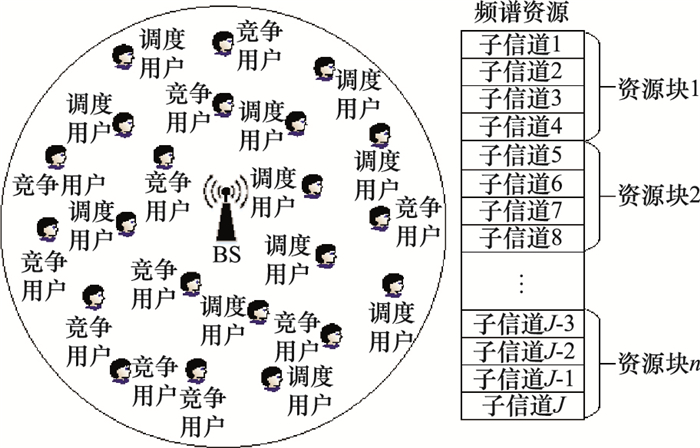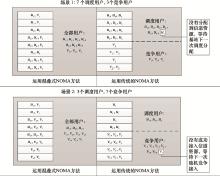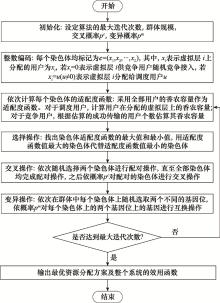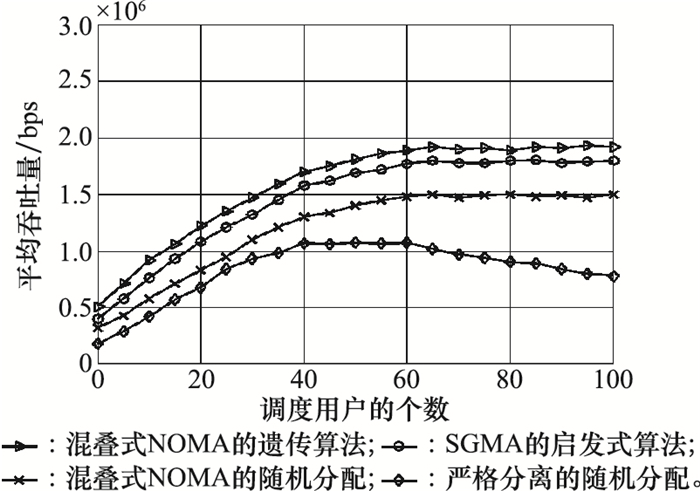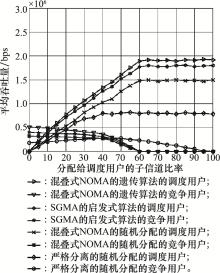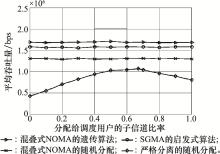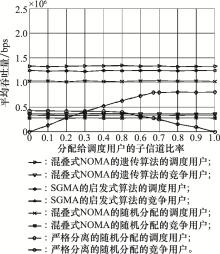| 1 |
NIRMALATHAS T A . How is the networked society impacting us[J]. Proceedings of the IEEE, 2018, 106 (3): 335- 338.
doi: 10.1109/JPROC.2018.2806093
|
| 2 |
DAI L L , WANG B C , YUAN Y F , et al. Non-orthogonal multiple access for 5G: solutions, challenges, opportunities, and future research trends[J]. IEEE Communications Magazine, 2015, 53 (9): 74- 81.
doi: 10.1109/MCOM.2015.7263349
|
| 3 |
WANG Q , ZHANG R , YANG L L , et al. Non-orthogonal multiple access: a unified perspective[J]. IEEE Wireless Communications, 2018, 25 (2): 10- 16.
doi: 10.1109/MWC.2018.1700070
|
| 4 |
ZHANG Y , WANG H M , ZHENG T X , et al. Energy-efficient transmission design in non-orthogonal multiple access[J]. IEEE Trans.on Vehicular Technology, 2017, 66 (3): 2852- 2857.
doi: 10.1109/TVT.2016.2578949
|
| 5 |
LIU Y , QIN Z , ELKASHLAN M , et al. Nonorthogonal multiple access for 5G and beyond[J]. Proceedings of the IEEE, 2017, 105 (12): 2347- 2381.
doi: 10.1109/JPROC.2017.2768666
|
| 6 |
WU Y Q, WANG C, CHEN Y, et al. Sparse code multiple access for 5G radio transmission[C]//Proc.of the IEEE Vehicular Technology Conference, 2018.
|
| 7 |
LIM S , PARK H . Codebook optimization for the superposition transmission of uplink SCMA systems[J]. IEEE Trans.on Vehicular Technology, 2018, 67 (10): 10112- 10117.
doi: 10.1109/TVT.2018.2862355
|
| 8 |
MA X Y , YANG L , CHEN Z , et al. Low complexity detection based on dynamic factor graph for SCMA systems[J]. IEEE Communications Letters, 2017, 21 (12): 2666- 2669.
doi: 10.1109/LCOMM.2017.2752745
|
| 9 |
HAN K N , HU J H , CHEN J N , et al. A low complexity sparse code multiple access detector based on stochastic computing[J]. IEEE Trans.on Circuits and Systems I: Regular Papers, 2018, 66 (2): 769- 782.
|
| 10 |
ABBAS R, SHIRVANIMOGHADDAM M, LI Y H, et al. On the performance of massive grant-free NOMA[C]//Proc.of the IEEE International Symposium on Personal, Indoor and Mobile Radio Communications, 2018.
|
| 11 |
WANG L Q, LI X Y, GUO S, et al. Resource allocation strategy in SCMA based multiple access system[C]//Proc.of the 1st International Conference on Electronics Instrumentation and Information Systems, 2018.
|
| 12 |
XIONG G, SUN J. An optimal resource allocation algorithm based on sum rate maximization for uplink SCMA system[C]//Proc.of the International Conference on Communication Technology Proceedings, 2019: 805-810.
|
| 13 |
BAI Z C, LI B, YANG M, et al. FH-SCMA: frequency-hopping based sparse code multiple access for next generation internet of things[C]//Proc.of the IEEE Wireless Communications and Networking Conference, 2017.
|
| 14 |
YAN Z Z, LI B, YANG M, et al. T-SCMA: time domain sparse code multiple access for narrow band internet of things[C]//Proc.of the Lecture Notes of the Institute for Computer Sciences, Social-Informatics and Telecommunications Engineering, 2018: 373-380.
|
| 15 |
YANG M , LI B , BAI Z C , et al. SGMA: semi-granted multiple access for non-orthogonal multiple access (NOMA) in 5G networking[J]. Journal of Network and Computer Applications, 2018, 112, 115- 125.
doi: 10.1016/j.jnca.2018.03.010
|
| 16 |
AU K, ZHANG L Q, NIKOPOUR H, et al. Uplink contention based SCMA for 5G radio access[C]//Proc.of the IEEE Global Workshops, 2014: 900-905.
|
| 17 |
NIKOPOUR H, YI E, BAYESTEH A, et al. SCMA for downlink multiple access of 5G wireless networks[C]//Proc.of the IEEE Global Communications Conference, 2014: 3940-3945.
|
| 18 |
NIKOPOUR H, BALIGH H: Sparse code multiple access[C]//Proc.of the IEEE International Symposium on Personal, Indoor and Mobile Radio Communication, 2013: 332-336.
|
| 19 |
ZHANG S Q, XU X Q, LU L, et al. Sparse code multiple access: an energy efficient uplink approach for 5G wireless systems[C]//Proc.of the IEEE Global Communications Conference, 2014: 4782-4787.
|
| 20 |
TAHERZADEH M, NIKOPOUR H, BAYESTEH A, et al. SCMA codebook design[C]//Proc.of the IEEE 80th Vehicular Technology Conference, 2014.
|
| 21 |
BAYESTEH A, NIKOPOUR H, TAHERZADEH M, et al. Low complexity techniques for SCMA detection[C]//Proc.of the IEEE Globecom Workshops, 2015.
|
 ), Bo LI(
), Bo LI( ), Mao YANG(
), Mao YANG( ), Zhongjiang YAN(
), Zhongjiang YAN( )
)

